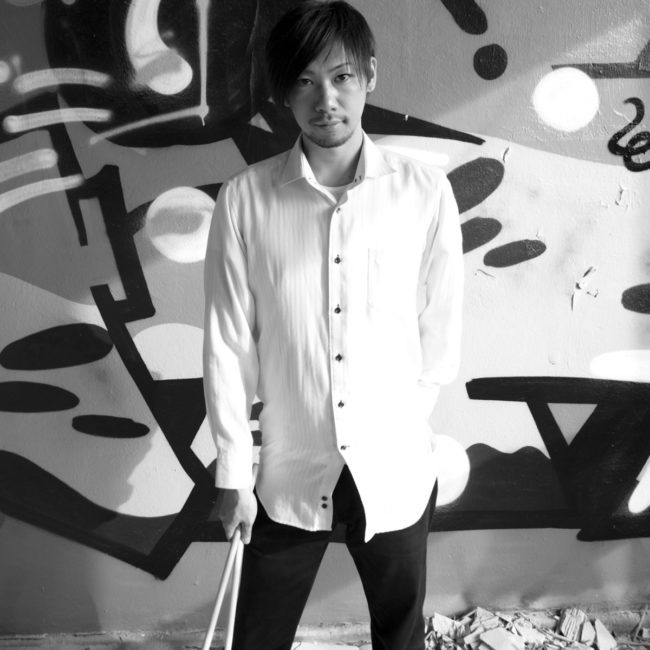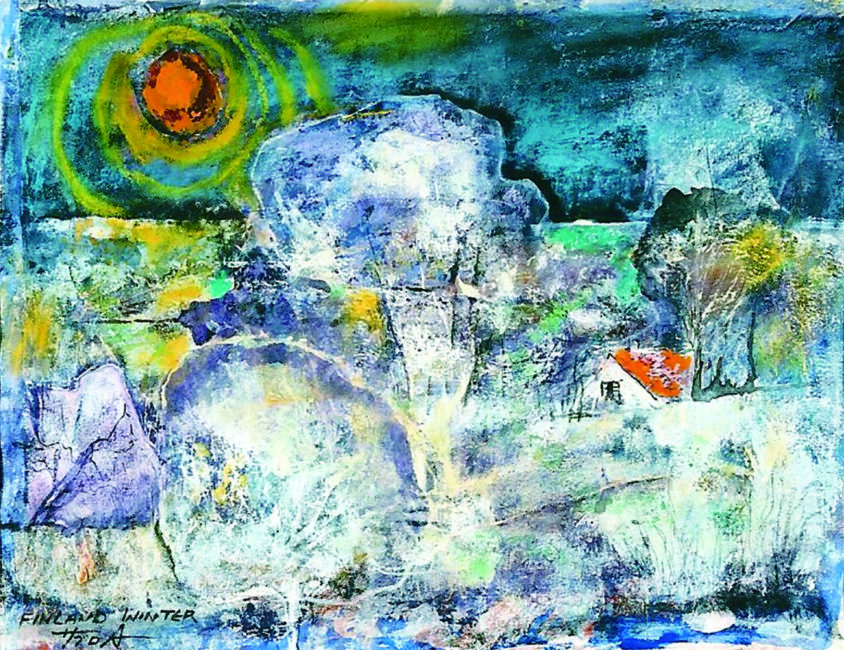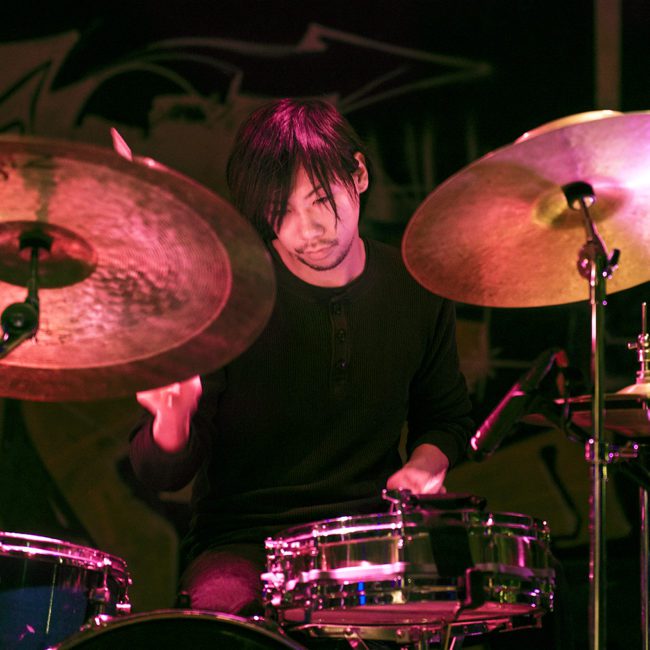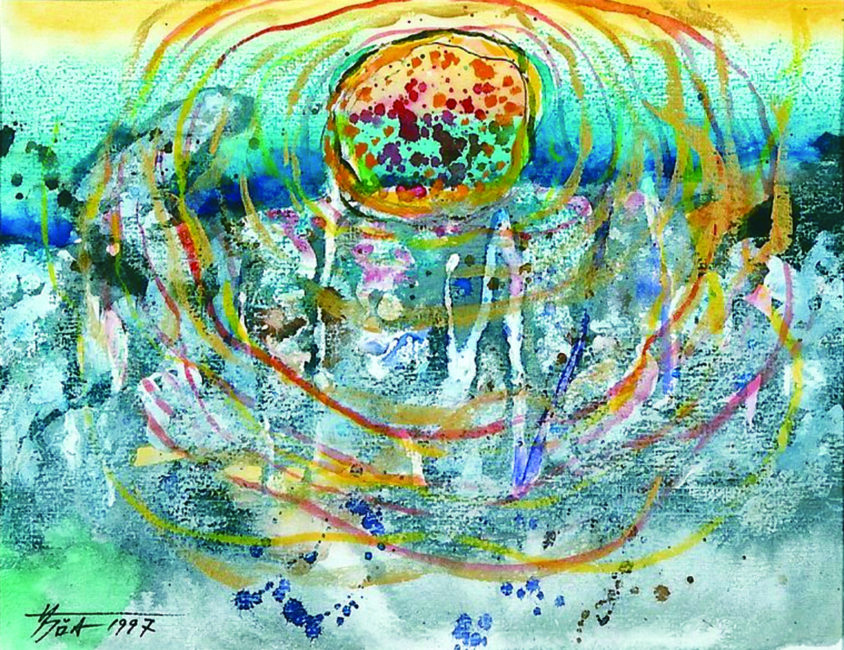Born in Hamamatsu, Chikara Aoshima’s music perpetuates the lightness and the mystery of the regions of Japan. Setting out on his journey as a drummer aged 14, Chikara’s understanding of sound and rhythmic architecture evolved over time, alongside his earlier studies at Berklee.
As a young performer, he performed with bands like ZANZO, making appearances at SXSW 2005, amongst other events, whilst honing his style as a standalone artist at the intersection of all his experiences.
Chikara’s childhood floated in a dream-like aesthetic set forth by the environment his quintessential artist father, Saburo Aoshima’s abstract paintings created—one of which, ‘Finland Winter‘, highly influenced Chikara’s debut album ‘Close Down‘ first released by Somehow Recordings in 2013.
The limited edition release, an amalgamation of all of Chikara’s memories as reflections in sound, was a pivotal moment in his life as a solo artist, especially moving from acoustic phonetics of drum language to transfusing that knowledge into electronically composed leftfield percussions amidst a serene blissed-out ambience.
A decade on, Chikara now re-issues ‘Close Down‘, revisiting the process of its creation and how it’s changed over the ages. We caught up with him to discover more about the album and his decision to reissue.
Interview by Asmi Shetty
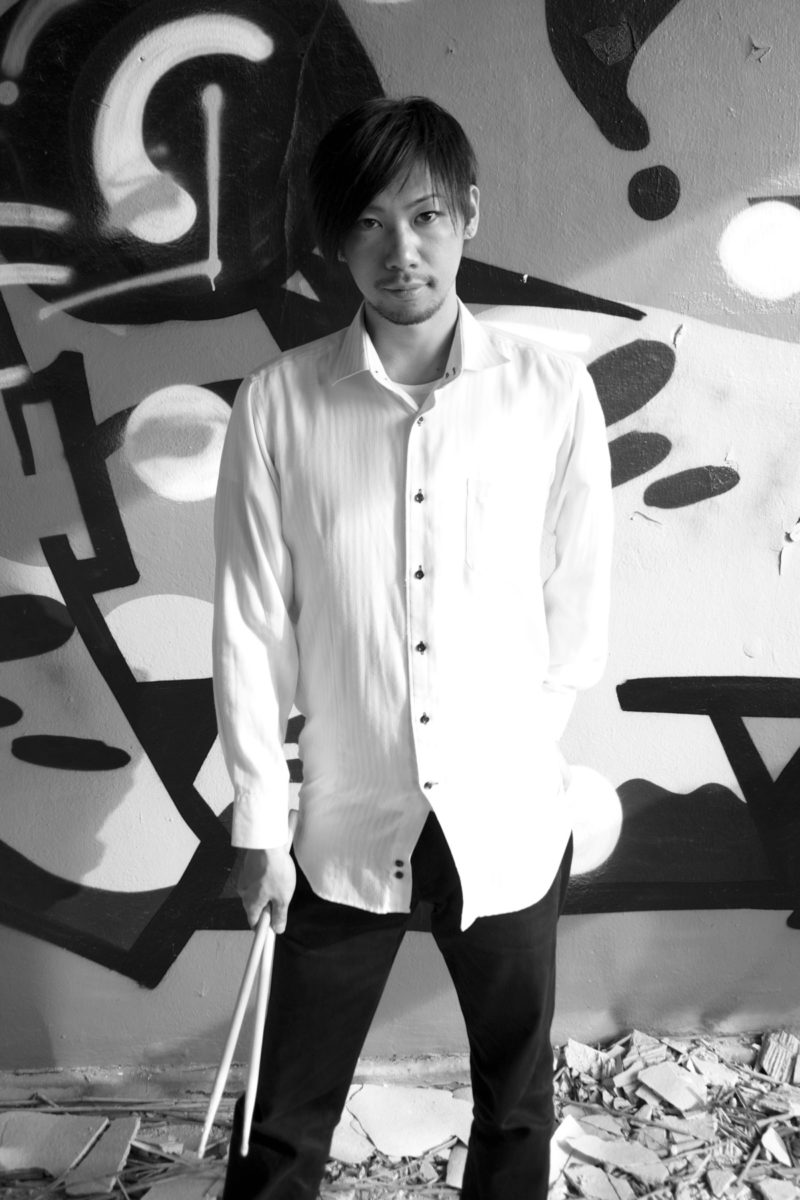
Hello Chikara, thank you for taking the time to speak to us about the reissue of your debut album ‘Close Down’. Released in 2013 on CDR format through UK-based label Somehow Recordings. Now after over a decade, the album has been remastered and reissued. What provoked you to re-release the album and how do you feel about revisiting and reflecting on this body of music?
The Corona pandemic was one of the biggest reasons why I decided to re-release this album. I wanted to once and for all organise the works I had accumulated up to now. Since this debut album was only released in CD format, I needed to re-release it so that it could also be heard digitally. All of the songs on Close Down were written in Boston, where I was a student, so it brings back memories of my time in Boston.
Cast us back to that era – what was going on in your life at that time? Where was the music composed and with whom did you create it with?
As I mentioned in the previous question, I was in Boston at the time as a student at the Berklee College of Music. As a student, I mainly learned practical drumming skills and music theory, but I also started to teach myself to create music with DAW such as Logic and Ableton Live. I collaborated with my roommate and friends from school on some of the songs.
In terms of your contemporary approach to production, how does ‘Close Down’ compare to your current mindset? What have you developed, built upon, finessed and improved on since its original release?
When I was working on Close Down, I had just started using some DAW, and everything was trial and error. Now that I know how to use it, I can produce more smoothly. However, I am interested in the tones and approaches on this album that I would not choose now. I have lived in Berlin for more than 10 years, so there is some influences from that for sure, and Close Down is more dreamy and has a lot of bright tones, since it was before I lived in Berlin. I now prefer more noise and darker tones, so there is a big difference.
The album artwork of ‘Close Down’ is a surrealist artwork ‘Finland Water‘ by your father Saburo Aoshima. Has your father’s art helped influence or shape your music? Do you find visual art often interweaves with your soundscapes?
There is of course influence from my father. When I was little, he used to take me to his studio and I used to watch him paint. But more often than not, the images come to me after I have created the sound first, rather than the images coming to me first. But I think the advantage I got from him is that I can create sounds as if I were drawing a picture.
From analog to digital, collaborating with bands, scoring video games, and many other musical adventures, how do these experiences reflect in your solo projects?
Collaborating with someone else means, for better or worse, that not all of your opinions will be reflected. You cannot create your own unique view of the world. On the other hand, you can share ideas and worldviews that you cannot think of on your own. These experiences have had a tremendous impact on my solo projects.
What are you up to next?
I would love to release my second album. I also have collaborations with a couple of singers and would love to release those as well. I will also be releasing an EP with my band Okujou Beat. We will be playing at Sisyphos in Berlin on September 8. I will be collaborating with an art center in Mechelen, Belgium and Staatstheater in Kassel, Germany starting in September.
‘Close Down’ is out now. Order a digital copy from Bandcamp.
